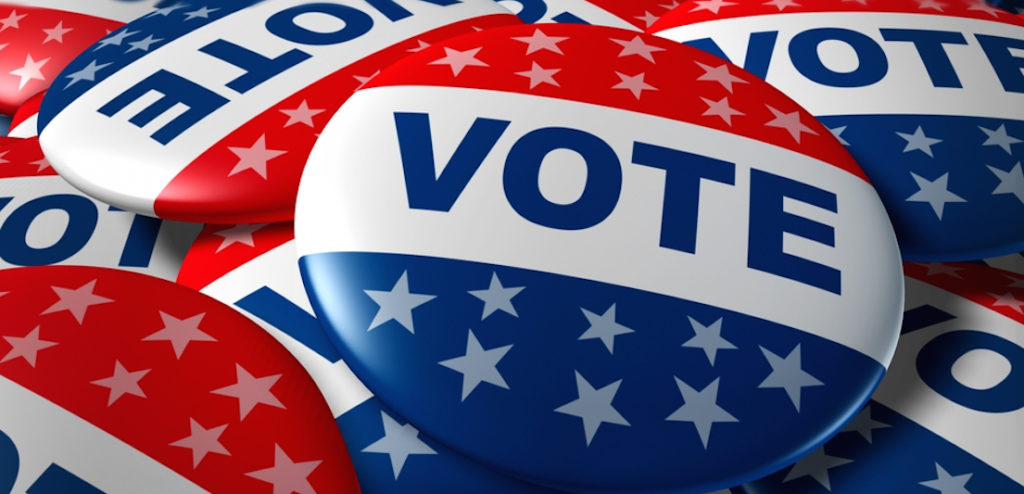A short time after the 2016 Presidential Election, which gave us the 45th President of the United States in Donald Trump, the State of Minnesota made a move to become part of the nation’s primary election system, abandoning years of tradition with the Presidential Caucus.
State Legislators came up with a compromise, essentially. The caucus system remains in place for statewide elections – and, in fact, were held late last months (without any of the snarls seen in Iowa, we might add).
Tuesday, however, the state will be part of the host of state’s taking part in “Super Tuesday,” with delegates going to national candidates en route to the nomination for President – the winner becoming the party’s choice in 2020.
For Republicans, that, of course, will be Donald Trump. Though the President has challengers on ballots nationally, he is the prohibitive choice of the party as it looks to retain the presidency for another term.
For DFL Party members, the race is much more contested. Many candidates will be on the ballot, including frontrunner (leading into Super Tuesday) Sen. Bernie Sanders, former Vice President Joe Biden, Sen. Elizabeth Warren and business magnate and former New York City Mayor Michael Bloomberg. Candidates Sen. Amy Klobuchar – the local favorite and Mayor Pete Buttigieg, who suspended their candidacy in the last week, will also appear on the Democrats’ ballot.
Wondering where to vote on Tuesday? The Secretary of State’s link to its “Pollfinder” is right here. Just put in your information, and it will tell you where to go. If you haven’t registered, Minnesota is a state that allows you to register at the polls. Find more information on that option here, also courtesy of the SoS.
 Here’s more info on when and where to vote in Tuesday’s Primary, courtesy of the State Secretary of State:
Here’s more info on when and where to vote in Tuesday’s Primary, courtesy of the State Secretary of State:
The current election law specific to the presidential primary is in Minnesota Statutes Chapter 207A and Minnesota Rules Chapter 8215. Common questions about the presidential primary are answered below.
- When will the presidential nomination primary take place?
- March 3, 2020.
- Will all parties participate in the presidential nomination primary?
- No, only major parties will participate. Two major parties, the Democratic-Farmer-Labor Party and the Republican Party, have submitted candidates for the ballot. Two other major parties, the Grassroots-Legalize Cannabis Party and the Legal Marijuana Now Party, have notified this office that they will not be participating.
- Will all parties be on the same ballot?
- No, each participating major party will have a separate ballot.
- Who decides which candidates will appear on a party’s ballot?
- The chair of each party will submit a list of candidates for the party’s ballot no later than 63 days before the date of the presidential primary (December 31, 2019). The Republican candidate list was filed 10/25/19, and the Democratic-Farmer-Labor candidate list was filed 12/17/19.
- What if a candidate drops out before the primary?
- Once a party’s list is submitted, changes will not be made to candidates that will appear on the ballot.
- Will there be a place to write in a choice or vote for “uncommitted”?
- Only if it is requested by the party chair. Party chairs will need to submit names of write-in candidates to be counted seven days before the primary.
- Will any other offices be on the ballot?
- No, only presidential candidates from a major party will appear on the presidential primary ballot. Other offices with a primary will be on the primary ballot in August.
- Who can vote in the presidential nomination primary?
- Any voter registered in Minnesota. Voters can pre-register through February 11, or register at the polling place when they vote. Note that voters must turn 18 years old by March 3 to vote in the presidential nomination primary.
- How will I be able to vote in the presidential nomination primary?
- Registered voters will be able to vote at their polling place on the presidential primary day or by absentee ballot in the 46 days before the presidential primary day (starting January 17, 2020). A voter must request the ballot of the party of their choice. If a voter refuses to select a party, they will not be able to vote in the presidential nomination primary.
- Will other people know which party’s ballot I request?
- A voter’s choice of party ballot will be recorded and is private data. However, a list of who voted in a presidential nomination primary and the political party each voter selected will be provided to the chair of each major political party. How a voter voted on the ballot will be secret.
- Will parties have to abide by the primary results?
- The presidential primary results must bind the election of delegates in each party.
- Who will pay for the presidential nomination primary?
- County and municipalities will be reimbursed by the state for the primary costs.
- How much will the primary cost?
- The Office of Secretary of State surveyed all 87 Minnesota Counties and, based on that survey, estimates that the cost to administer the Presidential Nomination Primary will be $11.9 million. The Secretary of State has certified this estimate to the Commissioner of Management and Budget. Counties and municipalities will be reimbursed for their costs of administering the Presidential Nomination Primary following the election.